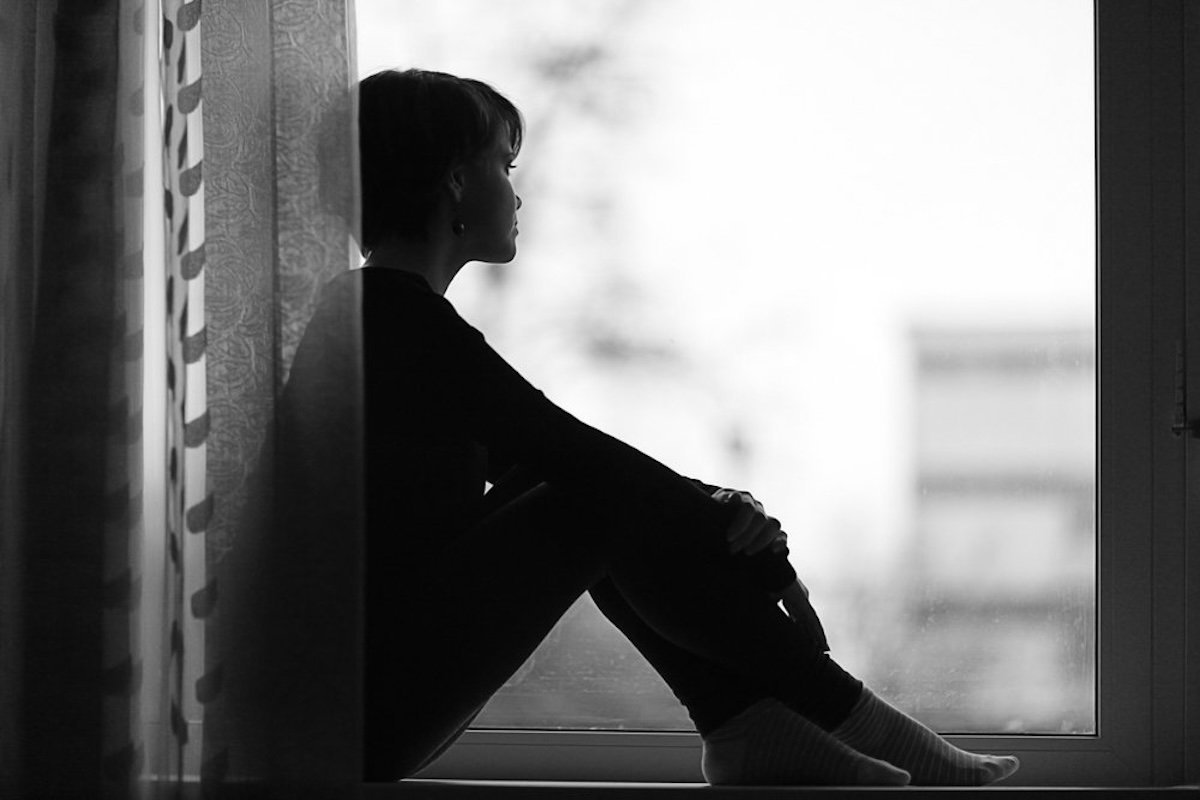While there's many causes and treatments of depression and mental health issues, some have found solace in what may appear to be an unlikely place: BDSM play. As someone living with chronic depression, kinky author M. Christian offers his perspective and advice...
While the exact numbers are hard to pin down, the World Health Organization (WHO) estimates that approximately 264 million people worldwide struggle with depression. The causes can be diverse, with it potentially stemming from environmental causes such as childhood trauma or neglect, ongoing stress, chemical dependency, or even due to genetics.
Because of this diversity of possible causes, as well as there being a wide-ranging spectrum of depressive symptoms, finding treatment options for mental health issues can be challenging. However, many people living with depression have found success in things like medication, psychotherapy, cognitive therapy, and other approaches – and for some, this includes BDSM and kinky play.
BDSM for mental health and depression
To note, this is not to say that kink activities like power exchange or other activities should ever wholly replace other forms of treatment. Depending on the person and the severity, depression can be a debilitating condition and thus should never be considered otherwise.

Using kink to reinforce self-esteem could be effective, but success will depend on many factors
Because of this, if you're considering BDSM as a way to try and deal with depression it is highly recommended that you use it as part of a regular treatment program conducted by medical or psychological health professionals. Not only that, but it’s equally important that your doctor or therapist be aware of your kink activities, as well as how you and your partner/s are looking at possibly using your play to help improve your mental health.
Additionally, always be clear about your condition upfront with whoever you might consider playing with, including your fears and expectations. One of the significant cornerstones of BDSM is, after all, all about consent, and you will absolutely need the consent of everyone you play with if you intend to try kink as a form of personal therapy.
With that naturally comes a need for total communication. But not just at the get-go or during negotiation, but at every step during play, as serious depression can be triggered by what might at first appear to be small events.
“If you're considering BDSM as a way to try and deal with depression it is highly recommended that you use it as part of a regular treatment program conducted by medical or psychological health professionals.”
There should also be discussion and agreement on the use of vocabulary within a scene, as individual words or phrases when used in seemingly innocuous ways can be a severe depressive trigger. So while assuming a Dominant or submissive role in a power exchange dynamic can be effective – which I’ll touch on in a moment – don’t let your role become an impediment to speaking out if something should go wrong.
MORE LIKE THIS
- BDSM Aftercare Tips For Your Partner
- Kink Shaming: You're Too Old, Fat or Tall For Your Kinks
- BDSM & Kink Test
All this might be a lot to absorb and process but, as I mentioned, depression can be a serious condition, and you owe yourself – as well as those who care for you – to approach BDSM with as clear a mind as possible. Both for what good it might do but also regards to any potential risks.
The power of positive BDSM
How you or anyone else might use BDSM as a tool for processing depression is like the illness itself – individualistic – which is why I or anyone else can’t say “do this” or “don’t do this.” Rather, take as much time as you want to look at what you feel you might need in a scene context. Talk it over with your playmates and especially your therapist or doctor, and from there proceed slowly and cautiously. You also need to accept that this is a process, with set-backs and re-evaluations likely to happen along the way.
“One of the significant cornerstones of BDSM is about consent, and you will absolutely need the consent of everyone you play with if you intend to try kink as a form of personal therapy.”
But to give a brief example of what could work, consider what is sometimes called positive or nurturing Domination. In these kinds of scenes, the Dominant’s focus is in working to build up their submissive’s self-esteem. This positive reinforcement can take many forms, such as praising them for various tasks which may include physical BDSM play – and it can be service-oriented, like the submissive preparing their Dominant’s cup of tea or performing sexual activities.

Struggling with mental health? BDSM play can sometimes help
Again, the idea is to conform to the notion that every BDSM scene should leave those involved better than when they began, though in this case with additional care, as it’s being done as a way to process some aspects of depression possibly.
BDSM might be of great help
Utilizing kink to boost self-esteem could be an effective, and even pleasurable, way to work through someone’s depressive state. However, there’s also the possibility that it may not be, or – in some cases – lead to more significant emotional challenges. But dealing with any illness, emotional or otherwise, is sometimes all about trial and error: trying out a variety of possible solutions and rejecting or reconsidering the ones that aren’t effective for those that are.
If BDSM is something you’d like to try, take the advice of someone who has lived with chronic depression every day for all of his life and has even tried power exchange play as a way to cope, sometimes with good and sometimes not-so-good results: never forget that you are not alone, that people love you, that you are strong and brave and capable, and that the world is a better place for having you in it.
Yes, kink may or may not work to improve your mental health and depression. But if you keep trying – cherishing and loving yourself for who you are, working with your therapist or doctor as well as reaching out to friends and family – then coping with depression isn’t just possible; it’s an absolute certainty. •
Further reading
WebMD - Depression symptoms and types
(UK) NHS mental health charities and organisations
(US) SAMSHA substance abuse & mental health services administration
(Worldwide) Kink Aware Professionals
M. Christian is a respected author and BDSM educator, having taught classes on everything from polyamory to breast teasing for venues such as the SF Citadel, Good Vibrations, Beat Me In St. Louis and many others.
Has BDSM helped you tackle depression or other mental health conditions? Let us know your experience in the comments! 💜
Images shutterstock/Kichigin, shutterstock/UfaBizPhoto
-
 199
199


-min.jpg.9323913df318207fb0b1e7787b55c90d.jpg)







Join the conversation
You can post now and register later. If you have an account, sign in now to post with your account.